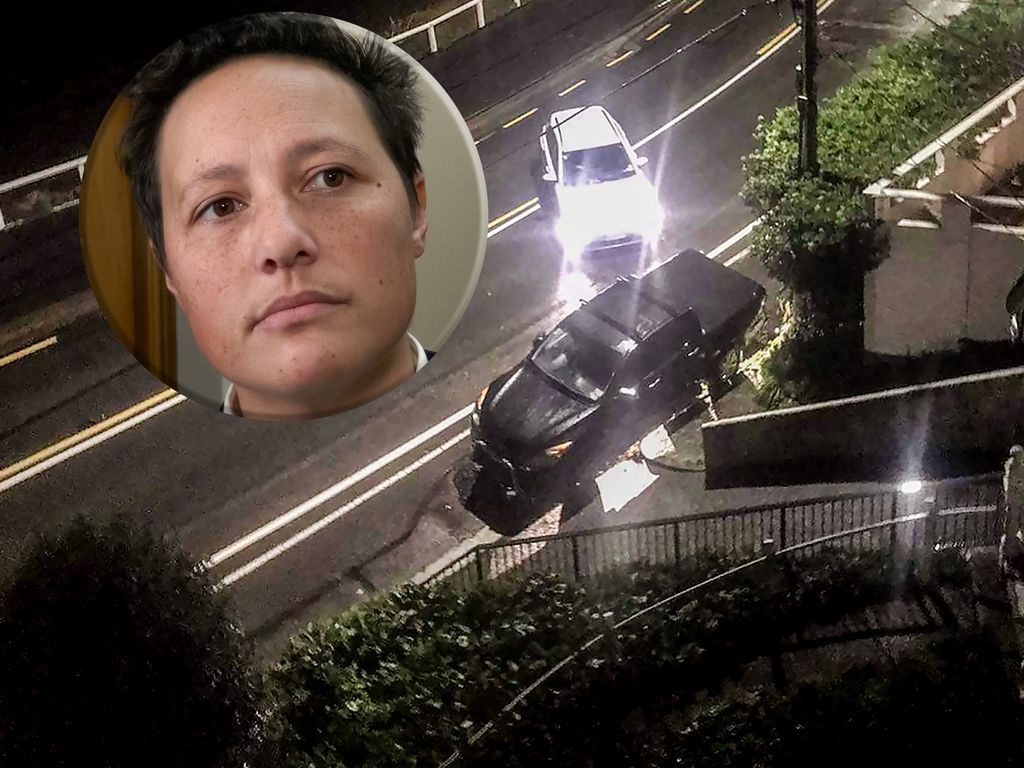
KIRI ALLAN CAR CRASH: INTERNAL AFFAIRS APOLOGISES FOR WITHHOLDING INFORMATION ON ‘PRIVACY’ GROUNDS
The Department of Internal Affairs has apologised for using privacy as an excuse to avoid saying whether the taxpayer would foot the bill for ex-Justice Minister Kiri Allan’s car crash in Wellington.
Allan surrendered her portfolios and did not stand for re-election after being arrested in late July. She had been driving her ministerial vehicle and crashed it into another car on Evans Bay Parade in Roseneath.
The disgraced former politician was issued an infringement notice for having excess breath alcohol between 250 and 400mcg. She has also been charged with careless driving and refusing to accompany a police officer, which she has pleaded not guilty to.
Shortly after the crash, the Herald asked the Department of Internal Affairs (DIA) whether insurance would cover the cost of the crash, given Allan was over the drink-driving limit at the time, whether the Government would foot the bill for the damage to both vehicles, and what the estimated cost would be.
A DIA spokeswoman said in a statement they do not release specific information on vehicles driven by ministers “to protect the privacy of individuals”.
When the Herald asked how information about the use of taxpayer money for a crash could breach privacy, the spokeswoman reiterated the earlier statement and invoked section 9(2)(a) of the Official Information Act.
The legislation allows Government departments to withhold official information from the public if it is necessary to “protect the privacy of natural persons”.
The Herald complained to the Ombudsman, stating privacy was not an appropriate ground to withhold the information on, as the information requested did not include personal information about Allan.
DIA has now apologised for the refusal - but replaced it with another ground to withhold the information on.
In a letter, ministerial services general manager Briget Ridden said the privacy ground was determined “under the rationale that the Minister was entitled to a level of privacy considering she was involved in an incident that caused physical and emotional stress at that time and is the subject of legal proceedings.
“On reflection, we acknowledge that the use of section 9(2)(a) of the Act as a withholding ground for your request was incorrect. Given that the department has determined that there was no information within the scope of your request, section 18(e) of the Act should have been applied, as the information does not exist.
“We note that legal proceedings regarding this incident are yet to be resolved, and the information requested is in part reliant on the outcome of court proceedings.
“The department apologises and takes full responsibility for the error. We will review this with relevant staff to ensure that there is an appropriate knowledge and application of the Act, including the Act’s role in accountability and transparency of government.
“We are dedicated to providing the best service to the public and make sure that proper standards are met, while upholding the provisions of the Act.”
Allan is yet to have the first call of her case in court due to various postponements. In a statement to the Herald, she said last week she had pleaded not guilty because she wanted to test an apparent grey area in the law about the right to consult a lawyer.
Allan said it would have been easier for her to plead guilty to the charges, which are relatively minor and could have been dealt with without her appearing in court.
The statement said that on the evening in question, Allan had requested to speak to a lawyer immediately before and after her arrest by police.
“The police did not allow her to and the charge of failing to accompany arose following her unwillingness to accompany without the ability to speak to a lawyer, which she is now pleading not guilty to.”
Allan said there was a lack of certainty as to the point at which that right applied, according to a number of lawyers she had engaged who had both prosecution and defence experience. She said it seemed to be a grey area, which was not ideal when it came to exercising a fundamental human right.
Her case is now due to be called in the Wellington District Court in February.
Melissa Nightingale is a Wellington-based reporter who covers crime, justice and news in the capital. She joined the Herald in 2016 and has worked as a journalist for 10 years.
2023-12-11T01:08:10Z dg43tfdfdgfd